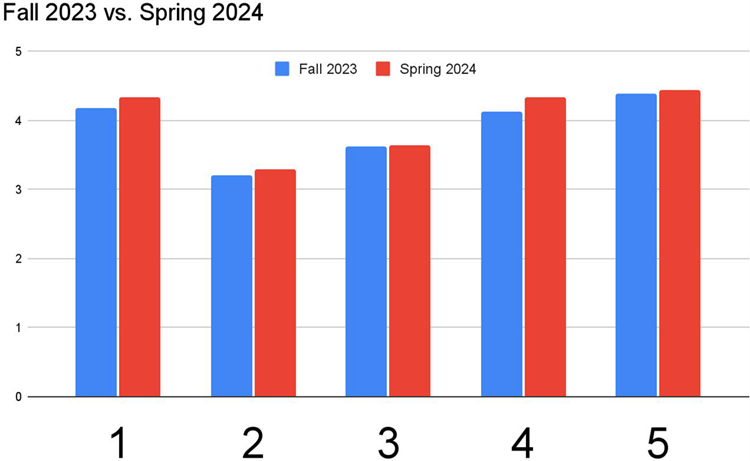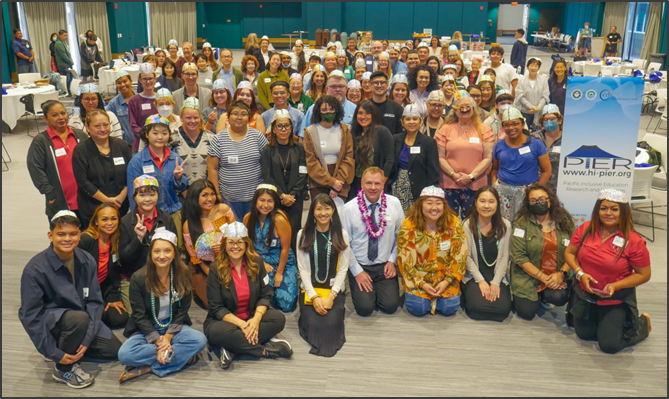Creating Inclusive Campuses: The Impact of Disability Student Advocacy Clubs
Amanda Patrick, Kiriko Takahashi, Megan Theobald
Center on Disability Studies, University of Hawaiʻi at Mānoa
Presented at the Association of University Centers on Disabilities (AUCD) 2024 Annual Conference – Stronger Together: Creating a More Inclusive World


Research Question
What role can disability student advocacy clubs play in improving the wellbeing of disabled university students?
Background & Problem Statement
Although many college students have disabilities, they often don’t finish their degrees in science, technology, engineering, or math (STEM) fields. This is because they may feel unhappy at school, have trouble managing their studies with their disabilities, or feel lonely. To help more students with disabilities succeed, we can create clubs on college campuses where they can get support and feel like they belong.
Hypothesis
We think that disability student advocacy clubs will improve academic and social outcomes for university students with disabilities.
Methods
This study looked at how well a program called NSF INCLUDES TAPDINTO-STEM helped college students with disabilities in the 2023-2024 school year. The program uses mentoring as a key intervention to help students graduate in STEM field and get into a career in STEM. It also encourages the development of student advocacy groups to change campus climate.
Participating students took surveys about their experiences on a scale. They were asked questions in the fall and in the spring. The surveys were done online. Questions were on the following topics:
1.) Student-reported sense of belongingness.
2.) Students perceived benefits from program engagement
3.) Student Responses to Items on Self-Advocacy Scale.
4.) Student-reported academic efficacy.
5.) Student-reported intent to persist.
Results
Reference: Linda P. Thurston, Ph.D. et al., “NSF Eddie Bernice Johnson INCLUDES TAPDINTO-STEM Alliance YEAR 4 ANNUAL EVALUATION REPORT.”

- Sense of Belonging: In Fall 2023, students reported a negative sense of belonging (r = -0.579). By Spring 2024, this shifted to a strong positive feeling of belonging (r = 0.721). Fall: n=110 Spring: n=88
- Perceived Benefits from Program Engagement: In Fall 2023, there was a moderate positive perception of benefits (r = 0.388). This increased significantly in Spring 2024 (r = 0.538). Fall: n=88 Spring: n=83
- Self-Advocacy Responses: In Fall 2023 and Spring 2024, responses to self-advocacy were weakly negative and not statistically significant (r = -0.167 and r =-0.095, respectively). Fall: n=91 Spring: n=85
- Academic Efficacy: Fall 2023 showed a weak positive relationship (r = 0.158), not significant. In Spring 2024, there was a moderate significant increase (r = 0.312). Fall: n=109 Spring: n=86
- Intent to Persist: In Fall 2023, intent to persist was weakly positive but not significant (r = 0.186). This improved in Spring 2024, becoming a significant positive relationship (r = 0.274). Fall: n=108 Spring: n=86
Summary
The study found important results regarding how students felt about their program and their academic performance. Students in the NSF TAPDINTO-STEM program reported better outcomes in both the Fall and Spring semesters. They felt a stronger sense of belonging to the program during those times as well.
Additionally, by Spring 2024, these students felt more confident in their academic abilities and were more likely to continue in their studies.
Discussion & Recommendations
Other research supports the findings, showing that being part of advocacy clubs helps students socially and academically. In order to sustain the positive outcomes seen from the NSF TAPDINTO-STEM group, the participating students created a student advocacy group to continue mentoring and resource sharing activities.
The student group on campus will be more visible to all students and move towards a more inclusive campus.
We created an advocacy group start-up guide to help students on different campuses to start their own group. We also have a mentoring handbook to serve as a guide for student mentoring. See the QR codes below.

2024 AUCD Group Photo
A group of conference attendees smiling and wearing crafted paper brain caps



